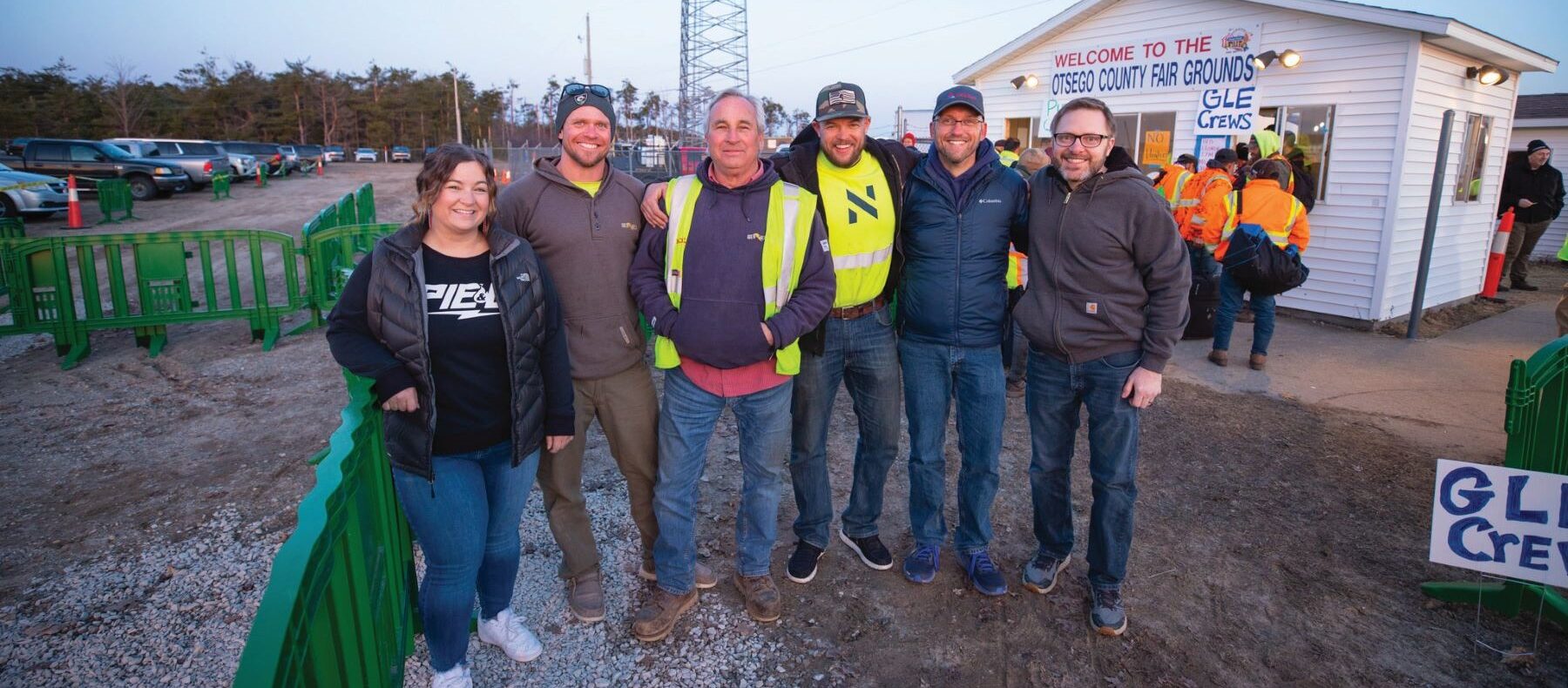
When John Kran stepped into his new role as president and CEO of the Michigan Electric Cooperative Association (MECA), he expected the usual whirlwind that comes with leading a statewide organization. What he didn’t expect was an unprecedented ice storm to tear through northern Michigan just weeks into his tenure—impacting thousands of cooperative members and sending crews scrambling to restore power across some of the state’s most remote areas.
But pressure is nothing new to Kran. Before joining MECA, he spent years advocating for Michigan farmers as National Legislative Counsel for Michigan Farm Bureau, championing rural communities at the state and federal levels. Earlier in his career, he advised Rep. Bill Huizinga in Michigan’s 2nd District, where he learned to navigate policy challenges and political gridlock.
So, when the ice storms hit, Kran did what he does best—got into the mix, assessed both the big picture and the smallest details, and rolled up his sleeves.
We recently sat down with Kran to discuss his whirlwind start at MECA, what prepared him for the job, and what lies ahead for Michigan’s
electric cooperatives.
Q: It’s fair to say your beginning at MECA was sort of “trial by ice,” if you’ll forgive the pun.
A: Yeah, I was only a few weeks in when those storms hit, and it was all hands on deck. It gave me an immediate look at the grit and collaboration that define our co-ops.
Were there key moments that prepared you for this leadership role at MECA?
Working in D.C. for a member of Congress gave me a real appreciation for how things get done—or don’t—in government. It taught me patience, persistence, and how to translate local concerns into national conversations. My time with Michigan Farm Bureau was another big one. I had the chance to advocate for farmers on issues that directly affected their livelihoods. That gave me a deeper understanding of rural infrastructure needs, including energy. It’s all come full circle.
You spent years advocating on behalf of Michigan farmers. How do you plan to carry that experience into the energy sector?
The playbook is similar—listen to your people, know the issues, and build strong relationships with policymakers. I plan to be in those rooms in Lansing and D.C., making sure rural energy needs are understood and prioritized.
How important is it to bring member voices directly to policymakers?
It’s critical. I can talk all day about the impact of a policy, but when a lineworker, a general manager, or a member shares their story—that’s what sticks. If we don’t tell our story as a cooperative family, someone else will—and probably not the way we’d tell it ourselves.
What excites you most about this opportunity?
Every co-op has a story, and I get to help amplify those stories, find shared challenges, and advocate for solutions. It’s an exciting time in energy—technology, policy, and consumer expectations are evolving quickly, and co-ops are uniquely positioned to lead.
Outside of work, how do you unwind with your family?
We enjoy Michigan’s seasons—time at the lake in summer and skiing in winter. We’re also trying to visit as many national parks as we can.





